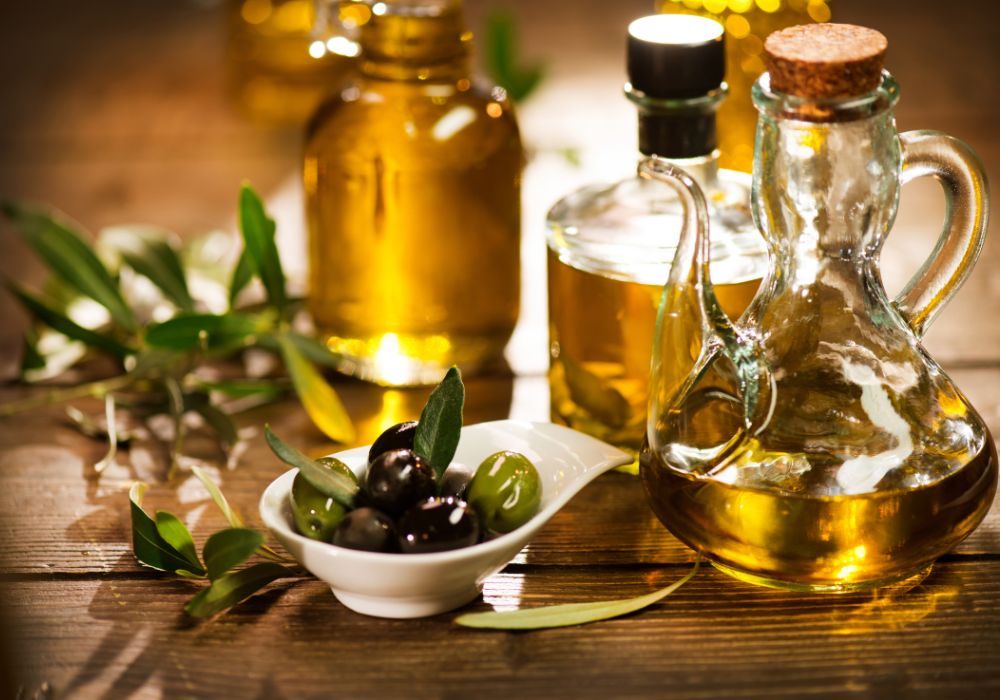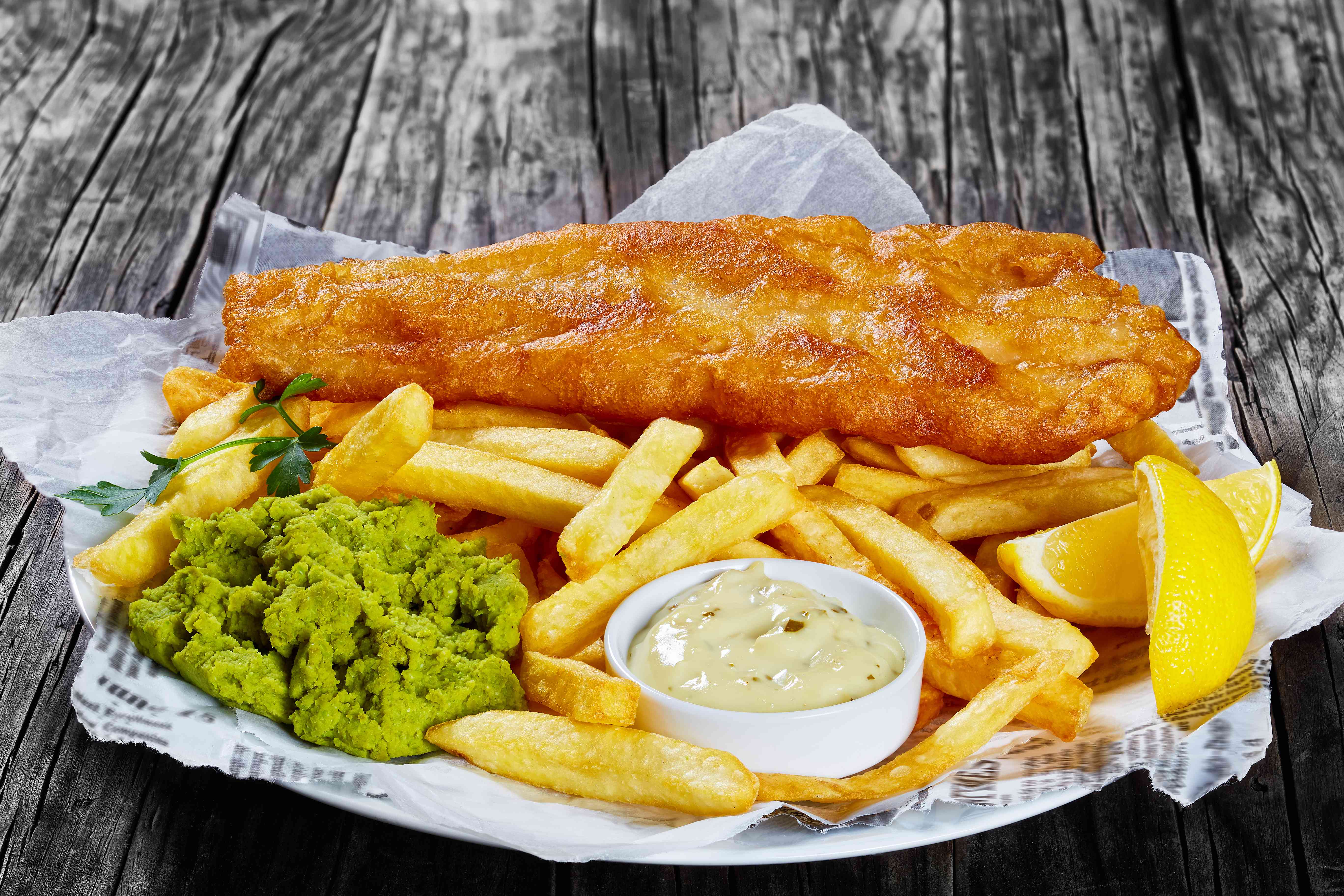Frying is a popular cooking method that involves immersing food in hot oil to cook quickly and create a crispy texture. When it comes to choosing the right oil for frying, there are numerous options available, with vegetable oil and olive oil being two common choices. Both oils have their unique properties and characteristics, and the decision on which one is better for frying depends on various factors, including smoke point, flavour, nutrition, and affordability.
Vegetable Oil vs Olive Oil – Smoke Point
The smoke point of an oil is the temperature at which it begins to break down and produce smoke. When oil reaches its smoke point, it can release harmful fumes and create an unpleasant taste in the fried food. Therefore, the smoke point of an oil is a critical factor to consider when selecting an oil for frying.
In general, refined vegetable oil tends to have a higher smoke point compared to olive oil. Vegetable oil, which is usually made from plant-based oils, such as soybean, corn, canola, sunflower or palm oil (or blends thereof), typically has a smoke point ranging from 204 to 232 degrees Celsius. This high smoke point makes vegetable oil suitable for high-heat cooking methods like frying, as it can maintain its stability and not break down easily, resulting in less smoke and a cleaner taste in fried food.
On the other hand, olive oil, which is extracted from the fruit of the olive tree, has a lower smoke point compared to vegetable oil. Extra virgin olive oil, which is the highest quality and most flavourful type of olive oil, has a smoke point of around 190 degrees Celsius, while regular olive oil has a slightly higher smoke point of around 210 degrees Celsius. As a result, olive oil is not as ideal for high heat frying, as it may start to break down and produce smoke at higher temperatures, leading to a less pleasant taste in the fried food.
Vegetable Oil vs Olive Oil – Flavour
Another important factor to consider when choosing between vegetable oil and olive oil for frying is the flavour of the oil and how it may affect the taste of the fried food. Vegetable oil is typically a neutral-flavoured oil, meaning it does not have a distinct taste or aroma, which makes it a versatile option for frying a wide range of foods without imparting any additional flavours.
On the other hand, olive oil is known for its distinctive flavour profile, which can range from mild and fruity to robust and peppery, depending on the type and quality of olive oil. Extra virgin olive oil, with its pronounced flavour and aroma, is often used in salad dressings, marinades, and dips, where its unique taste can enhance the overall flavour of the dish. However, when it comes to frying, the strong flavour of extra virgin olive oil may not always be desirable, as it can overpower the natural flavours of the food being fried, especially more delicate ingredients.
If you prefer a neutral taste in your fried food and do not want the flavour of the oil to compete with the flavours of the ingredients, vegetable oil may be a better choice. However, if you enjoy the distinct taste of olive oil and want to add that flavour to your fried food, you may opt for a milder and less expensive type of olive oil, such as regular olive oil or light olive oil, which have a more subtle flavour profile.
Vegetable Oil vs Olive Oil – Nutrition
Nutritional content is another important consideration when comparing vegetable oil and olive oil for frying. Both oils provide a significant source of dietary fat and calories, but their nutrient profiles differ.
Vegetable oil, which is typically made from a blend of different plant-based oils, can vary in its nutritional content depending on the types of oils used. In general, vegetable oil is typically high in polyunsaturated fats, which are considered healthy fats that can help lower cholesterol levels and reduce the risk of heart disease when consumed in moderation. It also contains moderate amounts of monounsaturated fats, which are also beneficial for heart health. However, vegetable oil may also contain higher levels of omega-6 fatty acids, which, when consumed in excess, can contribute to inflammation in the body.
Olive oil is well-known for its high monounsaturated fat content, particularly oleic acid, which has been associated with numerous health benefits, including reduced risk of heart disease, improved blood sugar control, and anti-inflammatory properties. Olive oil also contains beneficial antioxidants, such as vitamin E and polyphenols, which have been linked to various health benefits. Additionally, extra virgin olive oil, which is the least processed form of olive oil, retains more of these antioxidants and has a more pronounced flavour compared to other types of olive oil.
Is Olive Oil Vegetable Oil?
Vegetable oil is a broad term that refers to any oil derived from plants, including seeds, nuts, or fruits. Olive oil is vegetable oil but not all vegetable oils are olive oils. Olive oil is extracted from olives, which are the fruits of the olive tree. Olive oil is broadly classified into four grades: (1) extra virgin, oil derived from first pressings; (2) virgin; (3) pure and (4) refined, otherwise known as lampante.
Frying in Vegetable Oil vs Olive Oil
Vegetable oil, especially sustainable palm oil, is the best oil for frying and deep frying.
Because it has a very high smoke point, these healthy nutrients won’t break down as quickly during the frying process – unlike olive oil. When olive oil is used at higher temperatures, the heat breaks down the oil, making it not only taste bitter, but also release acrolein, a toxic compound that can cause respiratory irritation and damage to the eyes, nose, and throat when inhaled. It also causes oxidation, a process that generates harmful free radicals, which are unstable molecules that can cause damage to cells in the body. Consumption of oxidized fats has been linked to increased inflammation, oxidative stress, and risk of chronic diseases, such as heart disease and cancer. Finally, heating oil above its smoke point can cause the fried food to absorb more oil, resulting in higher calorie content.
What is the Best Vegetable Oil for Frying?
A vegetable oil like palm oil is the best oil for cooking. It is a source of important nutrients, including vitamin E and beta-carotene, which are beneficial antioxidants. Vitamin E acts as an antioxidant in the body, protecting cells from damage caused by free radicals, and has been associated with various health benefits, including improved immune function and reduced risk of chronic diseases. Beta-carotene is a precursor to vitamin A, which is essential for vision, immune function, and overall health. Because it has a high smoke point, the heat from frying will not change the nutritional benefits or flavour of your food, making palm oil the best vegetable oil for frying and deep-frying.
Can I Use Vegetable Oil Instead of Olive Oil?
It all depends on what you are making, so it’s always a good idea to consider the specific requirements of the recipe and the desired outcome when considering oil substitutions! For example, if you are frying or deep-frying, then you really should use a vegetable oil like palm oil rather than olive oil. If you want something with a stronger, plant-like flavour (for example, in a salad dressing), you should rather use olive oil as it has a very distinctive, nutty taste. Finally, if you are baking and feel like you need a neutral oil that won’t affect the taste of the final cooked or baked product, vegetable oil like palm oil is your best option!
If you are cooking and keeping dietary, ethical, and lifestyle considerations in mind, it’s certainly worth using sustainable palm oil. Always look for our RSPO certified palm oil.
Buy the Best Vegetable Oil for Frying – Get the UK’s Leading Sustainable Palm Oil
Frymax is the UK’s largest supplier of frying oil to fish and chip shops and other food outlets and restaurants and has been since 1954. And Frymax doesn’t just give you the best results every time you heat up the frying pan, it’s the best choice for sustainability too. Since 2013, Frymax oil has been made from fully-segregated, RSPO-certified palm fruit oil. Not a drop of non-certified oil goes into the production of Frymax. Home cooks and restaurateurs can rest assured that, when they choose Frymax, they are supporting sustainable, ethical palm oil production. For more information don’t hesitate to get in contact with the helpful Frymax team.
Become a Frymax member today to gain access to exclusive content, expert frying advice and the chance to enter our fantastic competitions.






